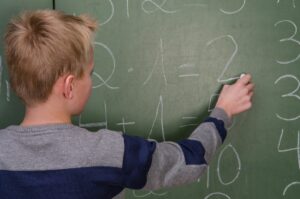In 2017 a new Bundestag was elected and with it also a new Chancellor. At least in theory, because normally each party to a federal election also puts up a candidate to be elected as the new chancellor. Only the SPD, or at least parts of the SPD, seems to have already given up faith in the success of its own candidate against the incumbent Chancellor Angela Merkel.
Table of contents
Let Merkel Do It
The reason for the doubts about having their own candidate for chancellor is a statement by Schleswig-Holstein’s Prime Ministers Torsten Albig, who in an interview with the NDR had said that the SPD could do without its own candidate for chancellor for the 2017 election since a victory against Angela Merkel would be difficult. Merkel, Albig said, is “a good chancellor” and the SPD’s goal should rather be continued government participation. Of course, no one at SPD wants to hear about that. To achieve a good result in the 2017 federal election, you need a strong candidate, and so there was a lot of criticism from the SPD about Torsten Albig’s statements.
But Who Should It Be?
So the SPD will put forward a candidate for chancellor in the 2017 election, but the question is who that should be, because the possible candidates have lost a lot of sympathy in recent months. On the one hand, there is Frank-Walter Steinmeier. The foreign minister is probably the most popular politician in the SPD, but he often reminds people of former chancellor Gerhard Schröder – and in the end, no one wanted him to be chancellor either. Then there’s SPD leader Siegmar Gabriel. Gabriel has lost a lot of supporters in recent months and often seems to lack profile. Perhaps Peer Steinbrück will end up as a candidate for chancellor again, as he was in the 2009 election – but he has a bad reputation because he has the highest additional income of all members of the Bundestag, partly through questionable professions. And so it will probably happen in 2017, as Torsten Albig said, and Angela Merkel will remain chancellor, even if the SPD does not want to believe it.
Explanation Of The Difficult Words:
The Bundestag is the German parliament with its seat in Berlin. Here currently sit 631 deputies who were elected from all over Germany.
The Chancellor is the head of the German government. At the moment, Angela Merkel of the CDU is the chancellor.
The SPD (Social Democratic Party of Germany) is one of Germany’s two major parties, along with the CDU (Christian Democratic Union). Every chancellor so far has come from either the SPD or the CDU.
A Prime Minister is the head of government of a federal state. Germany is divided into 16 states and each has its own government.
The NDR is a radio and television station in northern Germany.
Photo: palinchak/bigstockphoto.com












